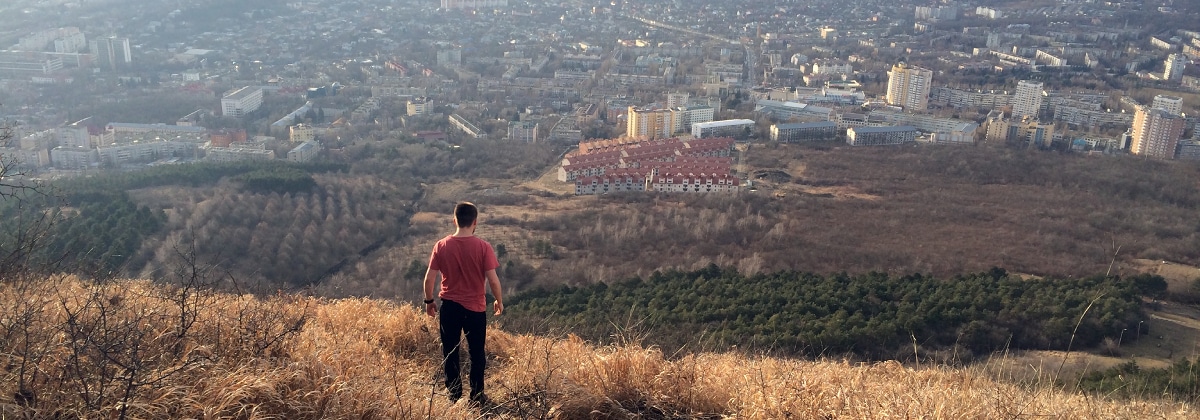Dual Citizens, Adoptees, and Heritage Speakers - Visas and Safety Issues
Could I still be a Russian citizen?
Anyone who emigrated from the USSR (in 1991 or earlier) lost their Soviet citizenship by default and would not be a Russian citizen today. However, anyone who emigrated from Russia to the USA, even if by adoption, in 1992 or later, retained their Russian citizenship. Russian citizenship is retained unless the individual, after turning 18 years old, takes specific, lengthy steps on their own behalf to renounce their own Russian citizenship.
What if my parents are Russian / from the former USSR?
If your parents are from the former USSR or Russia, you may face additional scrutiny when applying for visas, even if you were born outside of the former USSR or Russia. This may even apply if your last name or your parents’ last name sounds vaguely Russian. The consulate may ask for additional documentation on your relatives.
Isn’t it illegal to hold dual citizenship?
Russian law does NOT forbid carrying US citizenship as well as Russian. While Russia does generally require those seeking to acquire Russian citizenship to renounce other citizenships before taking Russian citizenship, those that hold Russian citizenship are not forbidden from taking other citizenships. Children who qualify for Russian citizenship at birth may take that citizenship in addition to any others they qualify for.
I’ve traveled to Russia before on a visa. Surely I can do so again?
EVEN IF YOU HAVE TRAVELED TO RUSSIA BEFORE ON A VISA YOU WILL NOT BE ABLE TO DO SO NOW. It is illegal for a Russian citizen to enter Russia on a visa. Russia requires Russian citizens, including those holding dual citizenship, to enter Russia on the basis of a Russian passport. Russian citizens may not legally receive a student (or any other) visa. Those who have traveled to Russia before on visas should be aware that this was due to bureaucratic oversight. Russian citizenship and migration records are now computerized and the consulates have tightened their review process. Anyone who was born in Russia will need to provide proof that he or she is not a Russian citizen. Those with birthplaces within any of the countries of the former Soviet Union will also face scrutiny and will likely need additional documentation.
But I don’t have a Russian passport. What do I do?
You need to contact a Russian consulate to have your international Russian passport issued/reissued. This process generally takes at least six months – and some report waiting multiple years for the passport to be issued. The Russian embassy in the US provides information on how to start the process only on the Russian version of their website. Several of our students and travelers have used private support services in the US to help them – including Russianpassportservice.org and Russianzagranpassport.com. The process should be started as early as possible for anyone who believes they might be a Russian citizen and might travel to Russia one day for study abroad or any other purpose.
Yes, you can study abroad in Russia with your Russian passport, if it is current and valid. You may enrol for any SRAS program or service (except visa assistance and assistance in enroling for degree programs). Note that renewing a Russian passport usually takes 2-4 months. Those choosing to follow this option should be aware that the US and Russia will consider you a Russian citizen while you are abroad in Russia. Students who find themselves in trouble with the authorities for whatever reason cannot expect the American Embassy to assist them in any way.
What about military conscription?
Russian law allows for the conscription of male Russian citizens from the ages of 18-27. However, the law excludes Russian citizens who live permanently abroad. You should register with the consulate in your country of residence as a Russian living permanently abroad. Enrollment in a university program also qualifies you for an exemption from conscription. While it is possible that you may be questioned about military service while abroad, there have been no cases ever of an American-Russian dual citizen being forcibly conscripted while abroad in Russia.
What about Russia’s law on dual citizen registration?
Again, this applies to Russians residing permanently in Russia. Those residing permanently abroad are exempt. However, we recommend that if you are a dual citizen and enter Russia, that you register anyway, to avoid any misunderstandings. A step-by-step guide (in Russian) can be found here. You should additionally register with the consulate in your country of residence as a Russian living permanently abroad before traveling.
Can I enroll in a degree program on the basis of my Russian passport?
Yes. However, SRAS is not authorized to work with students applying for degree programs as Russian citizens. You will need to do this on your own and will be expected to complete the same rigorous screening and application process (which usually involves an interview and written tests) that other Russian students must complete.
Why else should I keep my Russian passport?
The positive in keeping Russian citizenship is that you would have the ability to travel to Russia (and many other places in the world) without a visa, including many that would require you to get a visa as a US citizen. You would also be able to work in both Russia and the US without a work permit or special visa. As the global economy evolves, this may be something to consider, especially considering how many Russian companies are expanding to America, how many American companies are expanding to Russia, and how difficult and time consuming obtaining the proper work and visa documentation in either country can be. However, keep in mind that you will need to follow what responsibilities having both citizenships brings.
The process of renouncing Russian citizenship can take between 6-12 months. To renounce Russian citizenship, one must have a valid (not expired) Russian passport. Renewing a Russian passport usually takes an additional 2-4 months. If someone in this dual-citizen situation is planning to study abroad in Russia at any point, or simply travel to Russia, this issue should be addressed as soon as possible. Starting this process when applying for most study abroad programs is already too late.
The position of the Russian Embassy, as we perceive it, is that they would prefer that you NOT renounce your citizenship. We suggest keeping this in mind and doing things in stages as they are likely to be more helpful on the stage of renewing your passport than on the latter stage of renouncing citizenship.
SRAS Student Services
"I spent Fall and Spring with your program in St. Petersburg and it was truly the highlight and culmination of my University experience and just a banner year! I can't thank you enough for or gush enough about your program. I recommend it to just about everyone I talk to, whether or not they're interested in learning Russian."
- B. Lewis, University of Utah
"At a time in my life when I was at a crossroads regarding where my career might take me, this course showed me a path that truly inspired me, and I haven't looked back since."
- B. DeYoung, Reed College
"I’ve studied in Irkutsk and St. Petersburg with SRAS, but [Bishkek] is, by far, my favorite because of the intense focus on speaking skills. I spend about three hours, 4 times a week speaking one-on-one. It's such a unique opportunity! The people are also especially friendly here. My homestay is fantastic, the coordinator is a never-ending wealth of help, and the food of Central Asia is delicious."
- C. Hughes, The Evergreen State College
"The program here is wonderful. All of my teachers have been extremely helpful and I have made friends both here in the dorms and with others who live in the city and find that I often have many opportunities to practice Russian outside of the classroom. Already I feel that my Russian has improved immensely, especially my listening and speaking."
- J. Wilburn, University of South Carolina
"The SRAS winter program in Latvia was the perfect crash course in Russian-speaking culture and Latvian life. I arrived in Riga with a shaky understanding of grammatical case and how to hold a conversation, and the morning I left, I had a full conversation with my host mother about their school system. All of the activities immersed us in Latvian history and daily life, and we had so many opportunities to talk to locals in Russian and hear their stories. The instructors at Liden & Denz create a..." Read more
- J. Saunders, Central Washington University

